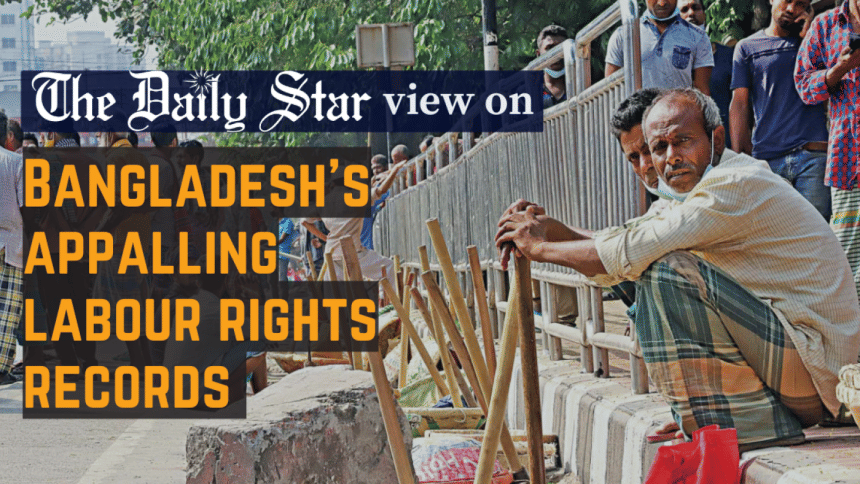Workers, Not Martyrs

We're alarmed to see the latest iteration of the Global Rights Index by the International Trade Union Confederation (ITUC) in which Bangladesh – for the sixth year in row – has been ranked among the world's 10 worst countries for workers. The report evaluated the labour rights records of 148 countries, and Bangladesh seems to have found a home in the comity of worst rights violators. While not an achievement to be proud of, this does give us an opportunity to assess what went wrong and why so.
In its evaluation, the ITUC highlights areas in which workers' rights continue to be "severely curtailed". It specifically mentions the garment sector, which employs over 4 million workers. Despite being the engine that runs this billion-dollar industry, their rights to strike and to establish or join trade unions are frequently violated. Often, attempts at forming unions are ruthlessly suppressed, and protests over unpaid wages met with extreme brutality, with police sometimes firing live rounds to disperse agitating workers. In 2021 alone, at least six workers were shot and killed by police during strikes. Many more were gravely injured.
As well as physical violence, threats to workers' rights also include mass dismissals, criminal prosecutions and heavy-handed bureaucracy, including an extremely burdensome registration process imposed on establishment of unions apparently to frustrate such efforts. A lack of opportunity to be unionised means a lack of opportunity for them to bargain for better wages and working conditions. The condition of workers in the export processing zones (EPZs) is particularly bad, as they are prohibited from organising any protest there.
Understanding the plight of garment workers is key because all the problems facing the labour force in general can be seen here in microcosm. An important component of labour rights is safety: safety from occupational hazards, and from harassment at workplaces. Another component is the guarantee of decent wages. Yet another component is job security. Workers in almost all sectors – including construction, shipbreaking, etc. – seem to suffer on these fronts, with the administration and existing legal instruments seemingly favouring the interests of employers over that of workers. With as many as 182 businessmen elected in the last general election – or over 61 percent of all MPs – the power balance between employers and workers is heavily skewed towards the former. This manifests in increasing discrimination, abuse and rights violations.
This is unacceptable. Labour rights are but human rights, and we cannot continue to ignore them for the sake of development. We urge the authorities to address this situation and create an environment in which no one takes advantage of the precarity of poor workers.

 For all latest news, follow The Daily Star's Google News channel.
For all latest news, follow The Daily Star's Google News channel. 





Comments